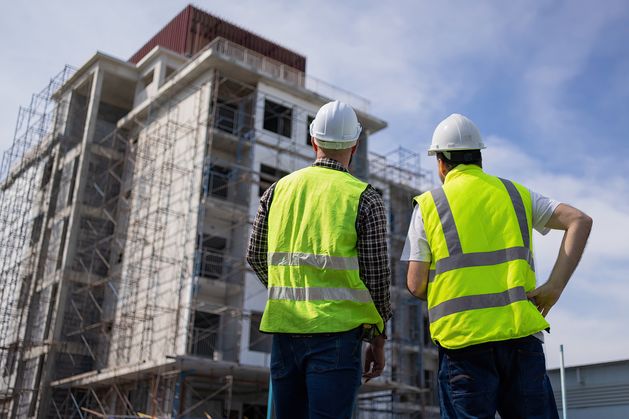They show that building apartments in Dublin has largely become commercially unfeasible, as construction costs are now higher than what buyers are willing to pay.
“In many cases, certainly in and around Dublin, they cost more to construct, when you take in all the costs including the land, than you can actually sell them for,” said Bryn Griffiths, vice-chair of the quantity surveying group within the Society of Chartered Surveyors Ireland (SCSI).
“There’s definitely a viability equation that isn’t stacking up.
“It wasn’t helped by the interest rate increases in the last few years.
“From a construction-cost point of view, we saw rapid inflation in 2021 and 2022. That has cooled, but it is still going up. What it isn’t doing is falling.”
Mr Griffiths co-authored a study published by the SCSI last July which found that the cost of building a typical apartment in Dublin was €2,363 per square metre, just over €300 higher than the average across 10 European cities surveyed. Only Zurich was more expensive.
Construction Industry Federation (CIF) director of housing and planning, Conor O’Connell
Data for the second quarter of this year, compiled by the four local authorities in a report entitled 4Dublin Housing Supply Pipeline, looked at residential developments of 10 units or more and excluded student housing.
It says there is planning permission in place for 82,700 new homes, almost 84pc of them apartments. Work has started on 26,492, with 8,973 fully built and the rest under construction.
There are 56,208 units that have yet to start development, over two-thirds of the total.
Court proceedings are holding up 7,455 of these, as they are the subject of ongoing judicial reviews.
At the moment, apartments are the most expensive form of residential accommodation to construct
Of those 56,028 units that have yet to have a brick laid, just over 6,000 are houses and the remainder, 50,180, are apartments. Most of these are in Dublin City Council, with 21,656, followed by Fingal with 12,406 and Dún Laoghaire-Rathdown with 10,293.
The problem of unbuilt apartments is most acute in the Dublin City Council area, where there are 29,805 planning permissions in place, 98.5pc of which are for apartments. “There are 21,799 units that have yet to commence development, representing 73pc of the total permitted units,” the survey said.
Conor O’Connell, director of housing and planning at the Construction Industry Federation, said the problem is a lack of available funding.
“At the moment, apartments are the most expensive form of residential accommodation to construct. Report after report has illustrated that,” he said.
“With the retrenchment of the pension funds and international real-estate funds that were forward funding and forward purchasing apartment blocks, there is little funding available for them at the moment.”
Today’s News in 90 Seconds – September 25th
Mr O’Connell said the average cost of building an apartment in Dublin, though it varies according to location and whether the blocks have a basement, is in excess of €500,000, and they are more expensive than building a house.
“The pension funds require stability in relation to public policy. With the rise in interest rates, and the rise of the cost of construction since Covid, an awful lot of those apartment blocks simply became unviable,” he said.
“Now no one is willing to fund them, because the yield – the criteria these international pension funds use – simply wouldn’t be there for them.”
In a pre-Budget submission, the estate agent Savills said that 5,000 private rented sector units were delivered in Dublin both in 2022 and last year, but the market has experienced a dramatic downturn, due to rental caps, rising interest rates and construction costs.
Savills estimates there will be a 68pc reduction in completions of private rented sector units in Dublin next year, down to 1,600.
“This reduction is further evidenced in the CSO’s planning permissions data for Q1 2024, which showed a 57pc year-on-year decrease in the number of apartments approved in Dublin during the quarter,” it said, calling for an easing of rental caps in order to create a better investment environment.

